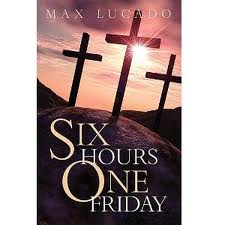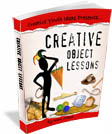By Joshua Goh
 One of my favorite movies in recent years is Pixar’s animated feature called ‘Up’. It follows the adventures of a cantankerous old man, Carl and his growing relationship with an endearing young kid, Russell. Along their journey to fulfill Carl’s lifelong wish, they run into a lovable talking dog, Dug.
One of my favorite movies in recent years is Pixar’s animated feature called ‘Up’. It follows the adventures of a cantankerous old man, Carl and his growing relationship with an endearing young kid, Russell. Along their journey to fulfill Carl’s lifelong wish, they run into a lovable talking dog, Dug.
As the story develops, we learn Dug and the rest of his doggie cohort are great trackers but find themselves frequently distracted by something they don’t seem to like very much – squirrels. In fact, part of the running gag is the dogs jerk their heads in some random direction and stare off into the distance mid-sentence (remember, they’re talking dogs) when they detect what they think are squirrels. Dug even openly voices his dislike for squirrels while they’re on their quest saying that he thinks a joke he’s telling is funny because “the squirrel got dead”.
I chuckled to myself when I saw the reactions of the dogs in the movie to squirrels, reminds me of my own reaction to ice-cream, except that I love ice-cream, but I digress. Where was I? Oh yes. Distractions. If you’re anything like me, you know how easily distracted creative people can be. One mistake is all it takes to jerk me out of a deeply moving musical performance to find the “squirrel” who made it. Especially on those reality music shows.
I must confess, it happens to me when I’m part of the congregation during worship too. A skipped beat, dissonant chord, off-pitch melody, out-of-tune instrument, a groove that doesn’t “sit well”, an ever-increasing tempo, or a wrong lyric, takes me out of the reverie of my worship experience. And I wonder why sometimes. Could it be I’m built too sensitive? That I’m a perfectionist at heart? Can anyone identify with me?
If you can, we’re not the first to be easily distracted in the very presence of God. No, I’m not talking about your music director either. There’s an interesting story in the Bible that we often quote when we talk about worship. But what we gloss over is that the person in this story is pretty much a squirrel chaser like ourselves.
In John 4, Jesus had been traveling and tired from his journey, in the middle of the afternoon, he takes a break by a well in a Samaritan town. A woman comes by and starts to draw water and naturally, Jesus asks her for a drink. She’s initially taken aback that a Jewish person is even bothering to speak to her. After all, women weren’t that well regarded in those days, much less Samaritan women. She questions his motives, albeit suspiciously, and Jesus answered, “If you knew the generosity of God and who I am, you would be asking me for a drink, and I would give you fresh, living water.”
First of all, simple hospitality would dictate that if you have a jug of water and someone, and I don’t care who you may have a personal grudge with comes by asking you for a drink, you’d have the common courtesy to offer him a drink, not question his motives. Let alone a hungry, thirsty, weary traveller.
Instead of responding to Jesus’ need for water, she responds instead by asking where he’s going to get the water he’s offering, even going so far as to question his ability and authority. Can we say, “Squirrel”? Still without his drink and yet unfazed by her distraction, Jesus goes on to say, “Everyone who drinks this water will get thirsty again and again. Anyone who drinks the water I give will never thirst—not ever. The water I give will be a… spring within, gushing fountains of endless life.” To which she replies, “Sir, give me this water so I won’t ever get thirsty, won’t ever have to come back to this well again!”
At this point, if I were Jesus, I’d be getting pretty annoyed. Here I am asking for my needs to be met (I’m thirsty and it’s hot out here for goodness sake) and the person who has the thing to meet my need is asking for something from me instead. Oh the irony. Well, I’m glad I’m not Jesus. You’ve got to love the way how he just ignores her lack of understanding of the deep spiritual truth He is sharing with her. And taking advantage of the moment where He has her attention again, He’s going right for the jugular; identifying her needs and situation. Let’s listen in on their conversation.
He said, “Go call your husband and then come back.”
“I have no husband,” she said.
“That’s nicely put: ‘I have no husband.’ You’ve had five husbands, and the man you’re living with now isn’t even your husband. You spoke the truth there, sure enough.”
And just as Jesus has her “arrested”, she again asks a squirrelly question.
“Oh, so you’re a prophet! Well, tell me this: Our ancestors worshiped God at this mountain, but you Jews insist that Jerusalem is the only place for worship, right?”
It’s interesting that out of all the questions she could have asked this man in front of her that she perceives to be a prophet, she asks one about worship. Despite the fact that her question seemed intended to divert Jesus’ attention away from her less-than-holy lifestyle, He understands that though she’s not perfect, her real desire is to understand worship. Even as she faces alienation from her community because of her past, she still yearns for communion with God. In spite of her sinful lifestyle, she longs to see God.
Jesus, always compassionate to those who hunger and thirst for Him, answers, “Believe me, woman, the time is coming when you Samaritans will worship the Father neither here at this mountain nor there in Jerusalem. You worship guessing in the dark; we Jews worship in the clear light of day. God’s way of salvation is made available through the Jews. But the time is coming—it has, in fact, come—when what you’re called will not matter and where you go to worship will not matter.
“It’s who you are and the way you live that count before God. Your worship must engage your spirit in the pursuit of truth. That’s the kind of people the Father is out looking for: those who are simply and honestly themselves before him in their worship. God is sheer being itself—Spirit. Those who worship him must do it out of their very being, their spirits, their true selves, in adoration.”
The woman said, “I don’t know about that. I do know that the Messiah is coming. When he arrives, we’ll get the whole story.”
“I am he,” said Jesus. “You don’t have to wait any longer or look any further.”
And right then when Jesus has her complete attention, He reveals Himself to her, that He is the Christ, her Messiah – the one whom she has been seeking for. She makes the dramatic turn from squirrel chaser to God chaser.
God hasn’t radically changed the way he deals with us through the ages. The same way he dealt with the woman’s imperfection and distraction is the same way he deals with us. The woman was initially so distracted by her own issues, she completely missed seeing the Messiah that she was seeking even though he was right there before her very eyes. It’s easy to see the root issue of the distractions that plague us are simply the symptom of a mind that isn’t completely focused on Christ. We’re thinking about the music, the lyrics, the lights, our inadequacy, our imperfection, anything but God – the object of our worship.
I’m reminded of a blog post by Bob Kauflin in his www.worshipmatters.com blog and if I may have the liberty to adapt what he says to this squirrelly topic,
“Don’t Expect Perfection – If I’m aiming [for] flawless[ness] then I am dooming myself to discouragement because I will never do it perfectly! Yes, I could do [be] better, (and evaluation is a useful tool to cultivate humility) but I do it from the foundation that I am already accepted in Christ and that my worship is pleasing to God through Jesus’ perfect sacrifice.”
So, if we find ourselves distracted by whatever is going on on stage, the solution then is to recognize that the imperfect worship being offered by the team on the platform is acceptable to God precisely because of Jesus’ perfect sacrifice – it is the desire to honor Him above all else that God finds truly pleasing. Not a perfect performance. We need to allow God to grab us and arrest our attention, just like the woman did, so that He can reveal Himself to us and our only reasonable response to that is to bow down and worship the King of Glory. After all, isn’t that our true desire and our ultimate and eventual purpose?
If our distraction comes from within and we feel that our imperfect life of sin is preventing us from approaching God’s throne, then I hope the story of the woman at the well speaks to you. God isn’t looking for people who are perfect. In fact, He sought out that woman knowing full well her lifestyle. Christ said to her the same thing he says to us now, “a time is coming and has now come when the true worshipers will worship the Father in spirit and truth, for they are the kind of worshipers the Father seeks”. If our worship is sincere and we are clear in our minds who we worship and why we’re worshipping, all that’s left for us to do is to depend on His complete work of redemption. It is Jesus who sanctifies our praises to the Father and we just simply need set aside fear of reprisal, approach Him with boldness and confidence and allow Him to deal with us. Are we willing to, like that woman so long ago, ask Him for a drink?
Squirrel!



 One of my favorite movies in recent years is Pixar’s animated feature called ‘Up’. It follows the adventures of a cantankerous old man, Carl and his growing relationship with an endearing young kid, Russell. Along their journey to fulfill Carl’s lifelong wish, they run into a lovable talking dog, Dug.
One of my favorite movies in recent years is Pixar’s animated feature called ‘Up’. It follows the adventures of a cantankerous old man, Carl and his growing relationship with an endearing young kid, Russell. Along their journey to fulfill Carl’s lifelong wish, they run into a lovable talking dog, Dug.
 I have included my most creative youth ideas from almost 20 years of youth ministry with teens from around the world. The youth ideas are grouped according to categories and include my favorite youth games, creative teaching ideas, youth devotions, children’s sermons, illustrations for youth sermons, object lessons for children and youth, and youth ministry training resources. (P.S. The creative ideas are great for children’s ministry and young adult ministry too)
I have included my most creative youth ideas from almost 20 years of youth ministry with teens from around the world. The youth ideas are grouped according to categories and include my favorite youth games, creative teaching ideas, youth devotions, children’s sermons, illustrations for youth sermons, object lessons for children and youth, and youth ministry training resources. (P.S. The creative ideas are great for children’s ministry and young adult ministry too)
 Was Reading “Six Hours One Friday” written by Max Lucado.
Was Reading “Six Hours One Friday” written by Max Lucado.